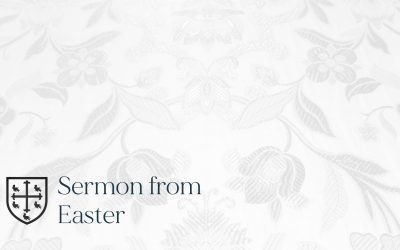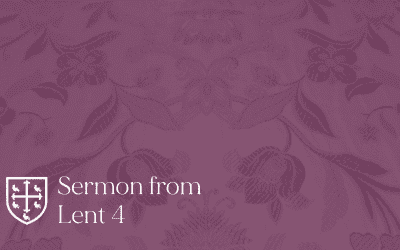4 Epiphany Year A 1/29/2023
Micah 6:1-8; Psalm 15; 1 Corinthians 1:18-31; Matthew 5:1-12
Rev. Mark A. Lafler
Our Gospel reading today and for the next several weeks will take us through Matthew chapter five.
And today it starts with these familiar words of Jesus…
The Beatitudes…
They mark the beginning of the Sermon on the Mount.
We probably know the words well…
Blessed are the poor in spirit, …
Blessed are those who mourn, …
Blessed are the meek, …
Blessed are those who hunger and thirst for righteousness…
They are called the beatitudes because they are attitudes that we should be…
Attitudes that we should have in our life…
These attitudes should be reflected in our behavior, our words,
our actions…
This is the foremost teaching we have from our Lord in the Gospels…
May we listen intently…
May we have ears to hear.
Today I want to focus on just one of the beatitudes in particular.
Jesus said:
Blessed are the peacemakers,
for they will be called children of God.
Peacemakers…
Making peace should be one of the qualities that describes the church and the people of God.
And yet it can be one of the hardest things to do…
There are so many voices in our world that want our attention…
wanting our allegiance…
only so they can gather us and use us against one another.
We are this way… they are like that.
We think this way… they think that.
Therefore, they are the enemy.
Yet…
We are called to be peacemakers in this time…
In our place…
In what we do and in what we say.
Peace is one of the fruits of the Spirit in the book of Galatians.
St. Paul writes in Colossians (3.15):
Let the peace of Christ rule in your hearts,
since as members of one body you were called to peace.
Again, in Romans (14.19):
Let us therefore make every effort to do what leads to peace and to mutual edification.
The author of Hebrews (12.14) writes:
Make every effort to live in peace with everyone…
The Psalmist (34.14) writes:
…seek peace and pursue it.
Making peace, living in peace with each other…
Is what we are called to do… to be…
So how do we actually do it?
It seems like an insurmountable challenge…
But with the Lord’s help we can walk in peace.
I want you to consider with me two ways by which we can be peacemakers today.
Number one: Speak justice to injustice.
There is a lot of injustice in our world.
And it comes in many shapes, forms, and situations.
From poverty to racism…
From abuse victims to domestic issues…
It’s in our political world, the judicial world, the religious world, our education systems, and in our business practices…
Injustice wreaks havoc in many ways…
To all sorts of people.
And the harm it causes comes out in various ways…
Violence, abuse, pain, the list goes on…
Like a snowball effect that keeps rolling and rolling and getting bigger and bigger.
Injustice thrives on power.
It thrives on protecting the institution regardless of how it impacts others.
Which is why many who work for justice speak out against the power at hand.
Like Martin Luther King Jr. who spoke out against the power at hand during the Civil Rights Movement.
He confronted the power with peace.
Injustice works against peace.
But speaking justice into the injustices is a way of making peace.
But not through the same means as the injustice…
Again, Martin Luther King said:
Hate begets hate; violence begets violence; toughness begets a greater toughness. We must meet the forces of hate with the power of love….
It is not that we run from power…
We use a deeper power…
A greater power…
The power of self-giving love that is at the heart of Jesus Christ.
Bishop N.T. Wright recently wrote:
Humans are made to exercise power, but true human power was always intended to be exercised through self-giving love.[1]
You see the power of our faith is in the cross.
It is in self-sacrifice.
We are saved by the power of God…
That is the power of the cross.
Which was a sacrificial death.
We see this same power of love in people like Martin Luther King…
In Mother Teresa…
But also in “ordinary” Christians who give of themselves to make things right.
Not fighting injustice with injustice…
But with the power of love…
The power of peace making.
We long for justice…
We see this need for justice even in our prayer…
The Lord’s prayer:
Thy kingdom come,
Thy will be done,
On earth as it is in heaven.
Even praying this prayer… is a call for justice.
Blessed are the peacemakers, for they will be called children of God.
Number two: Speak Forgiveness to unforgiveness.
This week I read about one of the consequences of the COVID-19 pandemic and the docking of cruise ships…
the passengers being quarantined.
A newspaper featured an article including interviews from some of the tourists…
commenting on some of the opportunities the passengers had for conversation.
One passenger joked how his spouse – who possessed an excellent memory – was able to bring up every transgression he ever had…
and he sensed she wasn’t done yet!
Many of us (probably most of us) have the innate ability to hold on to grudges.
And when there is great pain…
Suffering…
We can hold on to those things with a bitter unforgiveness.
I also read this last week about a couple who on May 31, 2021, celebrated 80 years of marriage.
Married in 1941.
Can you imagine…
Not only is that impressive…
But think of all the things that have happened in our world since May of 1941.
That’s amazing.
Pete and Ruth, reflecting on their marriage agreed that one key to sustaining their relationship has been the decision to choose forgiveness.
Forgiveness is the key to any relationship.
Marriage, friendship, family…
Not only does it hold relationships together…
It is one of the foundations of our society.
The ability to forgive each other.
And unfortunately, forgiveness is not on the rise in our culture.
In the age where individualism reigns supreme…
Where masses of people promote cancel culture…
Forgiveness is being ripped out of mainstream culture.
When someone apologizes…
no one believes them.
When someone makes a mistake…
they are tagged in the public forum.
Pastor Timothy Keller describes our society in a recent article he wrote in the New York Times.
He says:
Many people committed to justice value forgiveness,
but others worry that it lets oppressors off the hook.
Technology also makes a contribution.
Social media is a realm in which missteps and wrongful,
impulsive posts are never forgiven.
Screenshots of every foolish word you have ever said online can be circulated in perpetuity.
And our politics is filled with vitriol.
In our cultural moment a conciliatory,
forgiving voice is nowhere to be heard.
Calls for forgiveness and reconciliation sound like both-sidesism,
a mealy-mouthed lack of principle and courage.[2]
And yet, speaking and giving forgiveness is peace making.
Forgiveness isn’t excusing what has happened.
It is calling evil what it actually is.
But it is giving up the hope for revenge.
Most often the feelings of forgiveness always come after the forgiveness has been given.
And as Christians, we don’t just forgive because it is the right thing…
We don’t just forgive because we heard that it is the healthiest way for us to move forward.
We forgive because it is the very thing God has done for us.
- S. Lewis wrote:
To be a Christian means to forgive the inexcusable,
because God has forgiven the inexcusable in you.[3]
We see this way of peacemaking in the Lord’s prayer also.
We pray:
And forgive us our trespasses,
As we forgive those who trespass against us.
We pray that God forgives us in the same way that we forgive others.
We make peace with our wrongdoers through forgiveness…
Because that is how God ministers his forgiveness to us…
Bringing us peace with him.
…While we were still sinners, Christ died for us…
(Romans 5.8)
Peacemaking is not easy.
Many times, it involves our own struggles…
It wells up our own pains…
Our own suffering.
If making peace were easy…
Jesus wouldn’t be talking about it in the Beatitudes here in the Sermon on the Mount.
Justice and forgiveness are some of the most difficult parts of our calling.
But it is our calling.
Just as Christ our Lord through the power of the cross ministered his peace to us…
giving us justice and forgiveness…
So, we do so in this world.
I encourage you this week…
To take time…
Set apart a moment where you can consider…
Think about how God is calling you to speak justice in this world.
Think about where you may have unforgiveness…
Make it right.
As far as it depends on you…
Be at peace…
Be forgiving.
Blessed are the peacemakers,
for they will be called children of God.
Amen.
[1] N.T. Wright, Broken Signposts (New York: Harper Collins, 2020), 185.
[2] Timothy Keller, What Too Little Forgiveness Does to Us (New York Times 12.03.2022).
[3] C.S. Lewis, The Weight of Glory (New York: Harper One, 1949, 2001).




